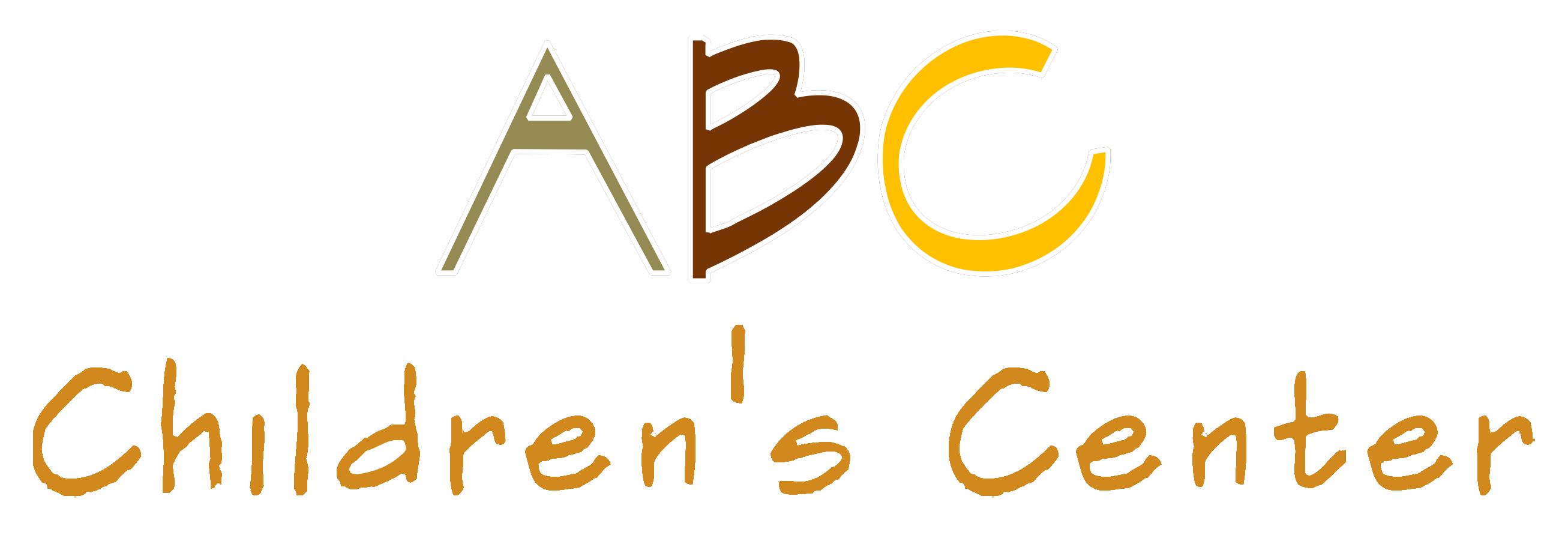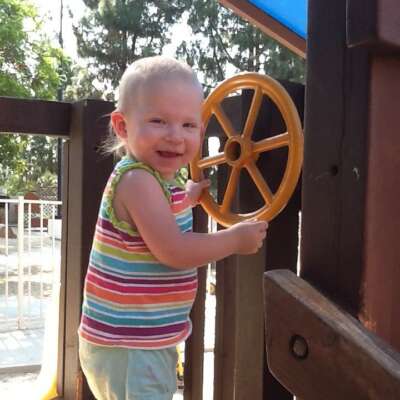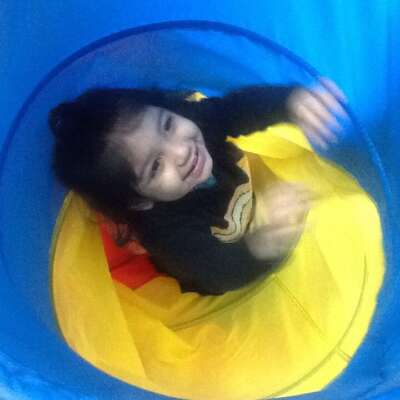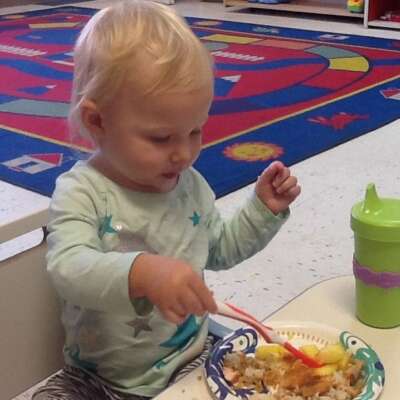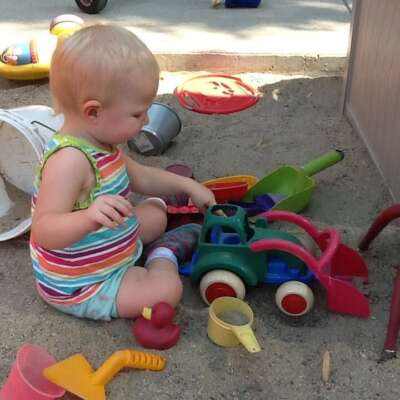ToddlerProgram
ABC Children’s Center toddler program is influenced by the Reggio approach at the fore end, that includes starting of the discussion topic to the activities theme in the classroom, community partnership with parents, outdoor classroom and projects done in atelier where the children create their own open ended project through teamwork and collaboration. Grounding/ Anchoring of the child’s learning is done through RIE Philosophy and parent –child relationship building. At ABC Children’s Center, the toddler program is formulated to build relationships and strengthen connections – between one child and another, between ourselves and the children in our care, children and their families, children and the natural world, and the fundamentals of space, independence, friends and community.
Children’s activities fostered by the Reggio approach in the Infant Classroom:
1. Theme/Topic of the month for the children
2. Art : Atelier
3. Loose parts : Sensorial and Cognitive
4. Schema : Cognitive and Life skills
5. Sensory stimulation
6. Documentation by teacher for the class boards
7. Life skills: Self Care , Care of Environment, Care of Pets and friends.
8. Language development
9. Recognition of colors, shapes, foods, fruits, everyday vocabulary objects, seasons.
10. Numbers and concept of counting
11. Cognitive
12. Independence of doing one’s own work, cleaning, communication, and chores.
The three teachers/facilitators in each child’s toddlers learning
1. Teacher as Facilitator
2. Environment as Teacher
3. Parents and community as supporters.
As per Magda Gerber’s RIE Approach each teacher has to follow;
• Respect for child, understanding each child’s unique service plan and documenting it in the class folder.
• Reciprocate to the child- as per the child’s interests, needs, responding to their communication and developing activities as per both critical and sensitive learning period of the child.
• Relationship fostering between child and yourself, child and other children. Additionally, the teachers embrace the Reggio Emilia view of the importance of community and creativity in the social construction of young children. We believe that the process of viewing young children’s behavior from the different angles suggested by these approaches has enriched and deepened our understanding of what we see. We see ourselves as ongoing learners, so this study of combining two ways of educating young children is both stimulating and inspiring.
Teacher’s role in the toddler class:
•Respect for the child paramount to process
•Similar view of the child – competent, capable, strong, offering a great deal to society
•Belief in child’s innate desire to learn and grow which compels him/her to explore, ask questions, listen, try things out, repeat activities, imitate behavior of adults they love
•Teachers base what they do with children on careful observation of children and careful listening
•Children learn through interaction within a carefully designed environment
Hallmarks of the Reggio Emilia philosophy are:
•Respect for each child as competent, capable, resilient and curious.
•A belief that children construct their own knowledge
•Teachers and children are seen as co-learners
•Embraces the idea that children express themselves in many different, creative ways or languages
•Encourage children to collaborate in small groups to express and explore their curiosities and understandings
•Community building with families
Children’s activities fostered by the Reggio approach in the Infant Classroom:
13. Theme/Topic of the month for the children
14. Art : Atelier
15. Loose parts : Sensorial and Cognitive
16. Schema : Cognitive and Life skills
17. Sensory stimulation
18. Documentation by teacher for the class boards
19. Life skills: Self Care , Care of Environment, Care of Pets and friends.
20. Language development
21. Recognition of colors, shapes, foods, fruits, everyday vocabulary objects, seasons.
22. Numbers and concept of counting
23. Cognitive
24. Independence of doing one’s own work, cleaning, communication, and chores.
